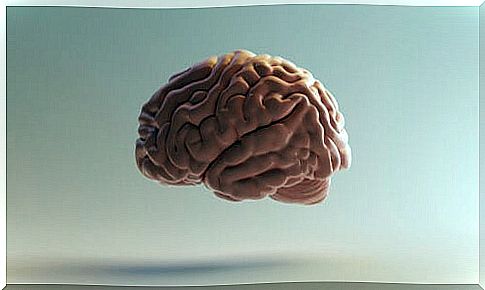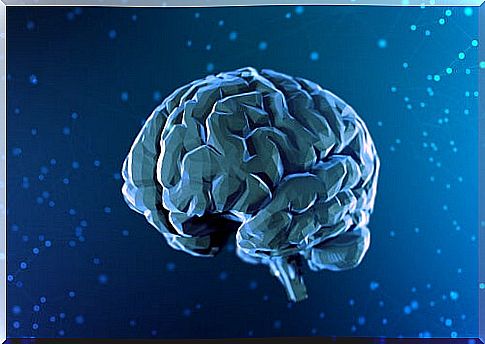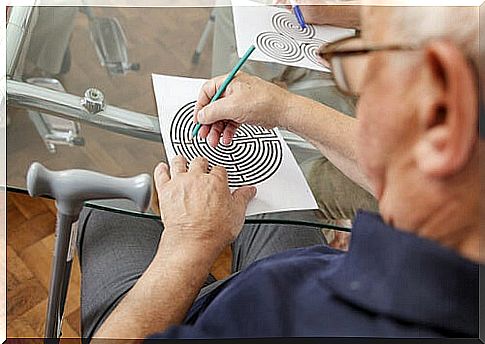Functions Of The Neuropsychologist

The neuropsychology is the area of psychology that studies the relationship between the brain, processes and behavior. Although a priori it may seem like a recent science, its objectives have for many years occupied the central focus of psychology. However, it has been with the development of neuroscience and neuroimaging methods that it has advanced considerably.
Within neuropsychology two main aspects can be found: the experimental and the clinical. On the one hand, experimental neuropsychology aims to validate theoretical models and verify the functioning of cognitive processes. On the other, clinical neuropsychology applies this knowledge to evaluation and intervention from a scientific point of view, with the aim of treating dysfunctions of the central nervous system.

Experimental neuropsychology
The experimental or research area focuses on providing the discipline with a theoretical-experimental framework, so that the findings obtained can be applicable to the clinical field.
To do this, it is based on the hypothetico-deductive method, common in neurosciences. This method consists of formulating hypotheses and objectives that will be verified by a rigorous method, as well as by validation by the scientific community.
There are several types of designs that can be chosen to study the phenomenon of interest, being able to use animal or human models. In any case, the studies must be approved by a scientific ethics committee. In the human study, in addition, an informed consent must be signed by the participants.
Research in neuropsychology is focused on:
- Describe disorders and the functioning of the brain and its cognitive processes
- Determine risk and protective factors
- Design and evaluate rehabilitation interventions and methods
Therefore, the basic function of the experimental neuropsychologist is to commit to ethical and methodological principles, with the aim of providing valid and transparent findings.
In doing so, you can help increase knowledge about disorders and develop truly effective interventions.
Roles of the clinical neuropsychologist
Evaluate
Neuropsychological evaluation is a process in which the ultimate goal is to detect, describe and measure the change or cognitive deficit and the alterations that have taken place after an injury or inadequate functioning of the brain.
The first step is to collect information about the patient and the disorder, thus developing the medical history. Subsequently, the most appropriate evaluation instruments (tests, questionnaires or tests) have to be selected according to the patient’s profile and the processes to be evaluated.
Finally, the evaluation instruments must be applied. These provide quantifiable information (scores) with which to compare performance with that of the general population. In addition, a fundamental part is the observation of the neuropsychologist during the course of the evaluation. This way you will be able to see what difficulties you encounter and in which part of the process, as well as your attitude and recognition of your own handicaps.
Diagnosis
Once the evaluation results have been obtained, they must be interpreted. Information about which processes are affected and to what extent will help the professional to make a diagnosis. Once the problem has been identified, it is proposed how their social, work and family life may be affected, as well as what the prognosis of evolution and recovery may be.
Then, a report is prepared that includes the results, the diagnosis and an approach to the intervention, as well as the estimate of the benefit to be achieved. In any case, you always have to choose to obtain the maximum benefit. This is the readaptation of the patient, achieving the highest degree of autonomy and quality of life possible.
On the other hand, it is essential that the report contains all the information in a way that is understandable to the patient and family, as well as to other professionals. Even so, this report should be discussed in consultation so that those affected can resolve all their doubts and communicate their concerns and personal objectives.
Rehabilitation
Once the difficulties have been detected and an intervention is scheduled, we proceed to neuropsychological rehabilitation. It consists of applying treatment techniques to improve behavioral and cognitive dysfunctions that appeared after the damage or alteration.
To do this, a series of needs-based objectives and specific implementation guidelines are established. The main thing in any neuropsychological intervention is the recovery, as far as possible, of the functions that are impaired, through cognitive stimulation.

Within rehabilitation, training and use of strategies that compensate for difficulties are also worked on . Thus, if it is not possible to recover a cognitive function to previous levels, at least it will be possible to continue carrying out activities with complementary strategies.
It is also very important to work on the emotions and behaviors related to the alteration and to accompany the adaptation process. Within this work, we must not forget the family members.
The role of caregivers and people around is essential. Therefore, it is necessary to explain to them what has happened to the patient and what it will mean in his life. Equally, it is of great value to teach him coping strategies and ways to participate in his recovery.
Specific areas of work
Although the neuropsychologist seems to be dedicated only to the clinic, brain damage or dysfunction can have very diverse origins and affect completely different populations. That is why neuropsychology comprises many areas to which it is applied.
Currently, those that have a considerable weight are child neuropsychology, geriatric neuropsychology or dementias, addictions, cross-cultural neuropsychology, legal-forensic, labor or education, among others.
In conclusion, regardless of the area, it is essential that the neuropsychologist seeks above all to improve the patient’s quality of life, as well as being able to work with other professionals (neurologists, nurses, occupational therapists, etc.) to achieve that goal together.









